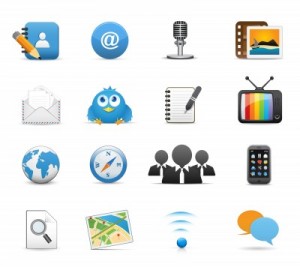Telling people is a key step
As I mentioned in yesterday’s post, if I don’t tell you something how can I expect you to know about it let alone share the information?
Have you heard the expression ‘build the website and people will come to you’? It isn’t the entire story as no matter how great your website is, if no one knows it exists you will not get many visitors to the site.
There are many ways to increase your business profile, and various people will tell you that you MUST do certain things to further your business. Having a blog, joining Twitter and Facebook, putting videos on YouTube and having a LinkedIn profile can help a business, although to varying degrees for each business.
However, what is often not mentioned is that you have to promote those things in order to get the benefit of them. It’s great to tweet about new products and share valuable information but if no one follow you and your clients don’t know you are on Twitter, it’s pretty much a waste of time. Likewise for all those other social media options.
So remember to let people know about your blog, website, twitter account, Facebook profile and so on if you want them to build your business profile and website traffic.
How have you told people about your social media presence? What has been the most effective for you?
PS If you don’t already know, my twitter name is TashWord and Word Constructions is on Facebook.




Recent Comments